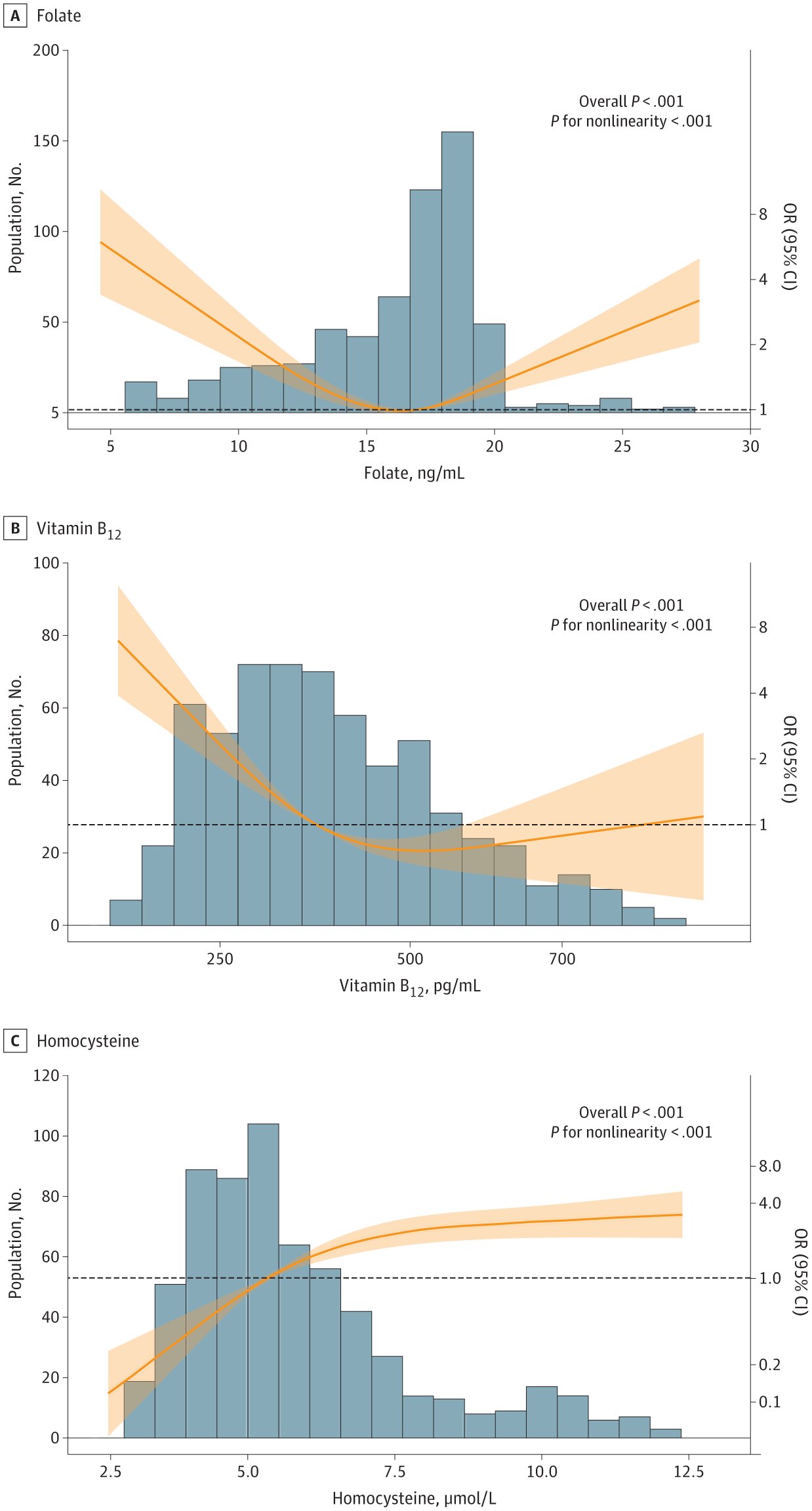
Pregnant women with either low or excessively high levels of folate in their blood may face a greater risk of their children developing congenital heart disease, according to a study from Guangdong Provincial People’s Hospital, China.
Folate is a B vitamin crucial for fetal development and recommended to prevent certain birth defects. Congenital heart disease (CHD) is the most common birth defect globally, affecting approximately 2.3% of births. The role of folate in preventing CHD is unclear, with previous studies having conflicting results. With recommendations for folate supplementation during pregnancy and folic acid fortification in many foods, folate intake is at an all-time high. These conflicting results need resolution.
In a case-control study, “Maternal Serum Folate During Pregnancy and Congenital Heart Disease in Offspring,” published in JAMA Network Open, researchers found a U-shaped relationship between the mothers’ serum folate levels during early pregnancy and the risk of CHD in offspring. This indicates that both low and high folate levels are linked to an increased risk of CHD.
The study involved 129 children diagnosed with CHD and 516 without. Maternal blood samples were taken around the 16th week of pregnancy to measure folate, vitamin B12, and homocysteine levels. The mothers’ serum data was grouped by folate count into low( 25%), middle (50%), and high (25%).
Mothers in the low folate level group had more than 3 times the odds of having a child with CHD compared to mothers in the middle range. Those in the highest folate group also showed an increased risk, with 1.81 times the odds of CHD in their children.
Folate was not the whole story
Children born to mothers with a vitamin B12 deficiency and low folate had a 7 times higher risk of CHD. In the high folate group, B12 deficiency was associated with a 6 times higher CHD risk.
Elevated homocysteine levels and low folate showed nearly 9 times the odds of developing CHD and 7 times higher risk in the high folate group.
The higher rates of elevated homocysteine levels accounted for approximately 32.9% of the association between low folate levels and increased CHD risk, which is an interesting find on its own. Homocysteine is an amino acid involved in a critical metabolic pathway in the body known as the methionine-homocysteine cycle. This cycle is essential for various cellular functions, including DNA synthesis, repair, and methylation.
Elevated levels of homocysteine in the blood (outside of pregnancy) is a condition known as hyperhomocysteinemia. This condition is most often caused by inadequate levels of folate, vitamin B12, or vitamin B6.
It can also be caused by mutations in genes encoding enzymes in the methionine-homocysteine cycle, which leads to insufficient conversion of homocysteine back to methionine. Since the normal cycle uses the vitamin B group, elevated folate and B12 would be expected.
Excessive coffee, alcohol consumption or smoking can elevate homocysteine and high homocysteine levels are already associated with an increased risk of cardiovascular diseases, including coronary artery disease and stroke in adults.
In finding both low and high folate levels associated with CHD risk and the even stronger correlations with low B12 and high homocysteine levels, the current study raises intriguing questions about underlying mechanisms that future research will need to sort out.
More information:
Yanji Qu et al, Maternal Serum Folate During Pregnancy and Congenital Heart Disease in Offspring, JAMA Network Open (2024). DOI: 10.1001/jamanetworkopen.2024.38747
© 2024 Science X Network
Citation:
Both low and high folate levels during pregnancy linked to increased heart defects in babies (2024, October 14)
retrieved 16 October 2024
from https://medicalxpress.com/news/2024-10-high-folate-pregnancy-linked-heart.html
This document is subject to copyright. Apart from any fair dealing for the purpose of private study or research, no
part may be reproduced without the written permission. The content is provided for information purposes only.

